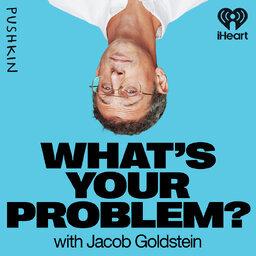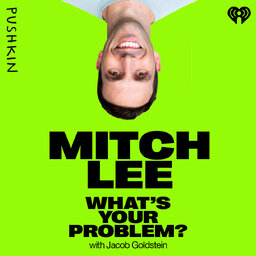Breastfeeding, Black Market Baby Formula, and Bobbie
Laura Modi is the founder and CEO of Bobbie, a company that makes baby formula and sells it directly to parents. Laura’s problem is this: how do you launch a startup in a highly regulated industry that has pretty much been a duopoly for decades?
Part of Laura’s answer is marketing, which raises another question: how do you get people to consider formula despite so much messaging that breastfeeding is better?
 What's Your Problem?
What's Your Problem?


